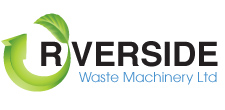 Add My Company
Add My Company
Sign In

All over the world, individuals, families, and organisations are waking up to the pressing matter of climate change. As rising temperatures have interfered with seasonal changes including altered rainfall, more frequent flooding, and longer droughts — as well as less predictable and severe heat waves — the visible signs of a rapidly changing planet are undeniable.
Attitudes towards global warming continues to shift, and so too does the language we use to describe it. This new mindset has cued the creation of a whole new set of environmental vocabulary and buzzwords in numerous languages.
What does ‘greenwashing’ mean?
This is a term used to describe companies who mislead their customers and followers by falsely claiming to be environmentally friendly. With movements like Extinction Rebellion continuing to make waves in the media and climate conferences like COP27 lingering in the spotlight, being eco-friendly or ‘green’ is one of the ultimate buzzwords in the business world.
In a bid to keep up with the latest trends, many organisations have professed a commitment to protecting the environment, with very little evidence to support such statements. Government research has highlighted that more than 40% of firms’ green claims could be misleading the public.
To help you avoid falling into the ‘greenwashing’ trap, we’ve put together a handful of tips for you to consider when developing your own business’ sustainable strategies…
1. Identify key areas for improvement
The first step is to identify crucial elements to change or develop within the business structure. Can you reduce waste or explore new recycling measures? Every organisation has to start somewhere, and it is better to be open and transparent with your customers, as well as build a long-term plan for an environmentally-friendly future.
2. Set realistic goals
Once you have pinpointed which aspects require improvement, agree reasonable goals and timeframes. Are there some ‘quick fixes’ that you can change straight away, or will some aspects take a little longer to implement? Diarise regular check ins to assess the lay of the land and ensure you’re consistently growing and improving.
3. Report your progress
Report on progress and ensure you can back up all claims with solid facts and figures from within your business. The more evidence you are able to supply, the more confidence you will inspire in your customers.
4. Shout about successes
Once you’ve made positive sustainability changes within your organisation, be sure to incorporate these into the wider marketing strategy. Highlight some of the initiatives you’ve launched, include written and photographic testimonies, and encourage others within your network to join the environmental movement.
5. Use numbers, not language
Last, but by no means least, steer clear of using corporate buzzwords unless you can back them up with clear evidence. While it’s tempting to jump on the bandwagon and use sweeping terms like ‘eco-friendly’ and ‘emission-free’, always make sure you’re being credible and honest – with data to substantiate your claims.
Here at Riverside, we have services to help organisations that wish to advance their green agenda, boost sustainable credentials, and improve recycling capabilities – all the while saving money with the use of a baler or compacter. To learn more about our services, talk to our friendly team.
For more information on What is ‘greenwashing’ and how can it be avoided? talk to Riverside Waste Machinery Ltd
Enquire Now
List your company on FindTheNeedle.
